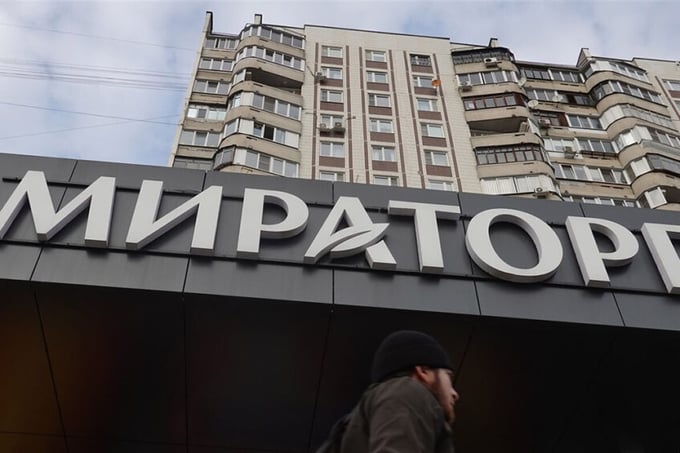June 21, 2025 | 01:17 GMT +7
June 21, 2025 | 01:17 GMT +7
Hotline: 0913.378.918
June 21, 2025 | 01:17 GMT +7
Hotline: 0913.378.918
The factory will produce the initial form of pharmaceutical heparin and hydrolysed feed protein.

Photo: ANP
With an investment cost of 1.6 billion roubles (US $16 million), Geparinus is the first high-tech project for pork mucosa processing in Russia, according to Miratorg. The company will process mucosa, which was previously exported to Europe, obtaining products with high added value.
The initial form of pharmaceutical heparin is used in manufacturing heparin, used as anticoagulants in surgery, in the treatment of pneumonia and as an antithrombic agent in heparin ointments. Hydrolysed feed protein in turn, is considered to be a side product of pharmaceutical heparin production.
Miratorg emphasised that Geparinus will process mucosa from the company’s slaughterhouses and from other market players. The factory is designed to process 40,000 tonnes of mucosa to manufacture 70 tonnes of pharmaceutical heparin and 8,000 tonnes of hydrolysed feed protein per year.
In 2021, Russia imported roughly 97% of pharmaceutical heparin from China. Pork mucosa in the previous years was primarily exported to Europe.
Russian agricultural holding RusAgro, one of the largest pork producers in the country, also considered establishing capacities for pork mucosa processing, Maxim Basov, general director of the company, disclosed. The company abandoned these plans in order “not to lose its focus.”
The construction of Geparinus started in the second quarter of 2021. Miratorg and Van Hessen originally planned to put the factory in operation by the end of 2022. The Russian meat industry welcomed he project. There were no similar projects in Russia, said Yuri Kovalev, general director of the Russian Union of Pork Producers (RUPP).
For a big company like Miratorg, it was logical and right to process all parts of the pork carcass to the maximum possible extent, said Sergey Yushin, head of the Russian National Meat Association. This strategy would let the company expand the range of products with a high added value, eventually improving business profitability.
(PP)

(VAN) Poultry production in Poland, which has only started recovering from devastating bird flu outbreaks earlier this year, has been hit by a series of outbreaks of Newcastle disease, with the veterinary situation deteriorating rapidly.

(VAN) Extensive licensing requirements raise concerns about intellectual property theft.

(VAN) As of Friday, a salmonella outbreak linked to a California egg producer had sickened at least 79 people. Of the infected people, 21 hospitalizations were reported, U.S. health officials said.

(VAN) With the war ongoing, many Ukrainian farmers and rural farming families face limited access to their land due to mines and lack the financial resources to purchase needed agricultural inputs.

(VAN) Vikas Rambal has quietly built a $5 billion business empire in manufacturing, property and solar, and catapulted onto the Rich List.

(VAN) Available cropland now at less than five percent, according to latest geospatial assessment from FAO and UNOSAT.

(VAN) Alt Carbon has raised $12 million in a seed round as it plans to scale its carbon dioxide removal work in the South Asian nation.